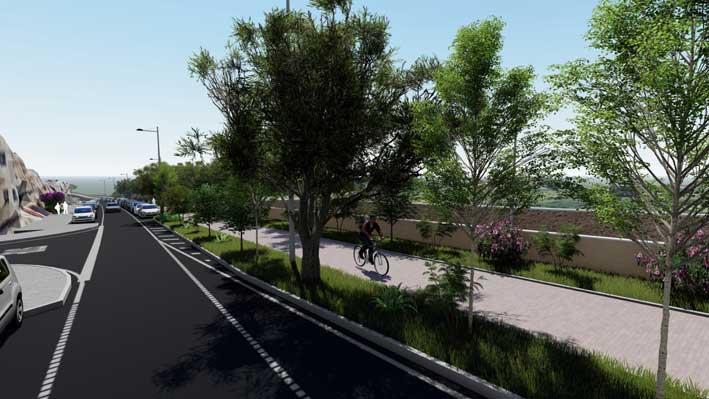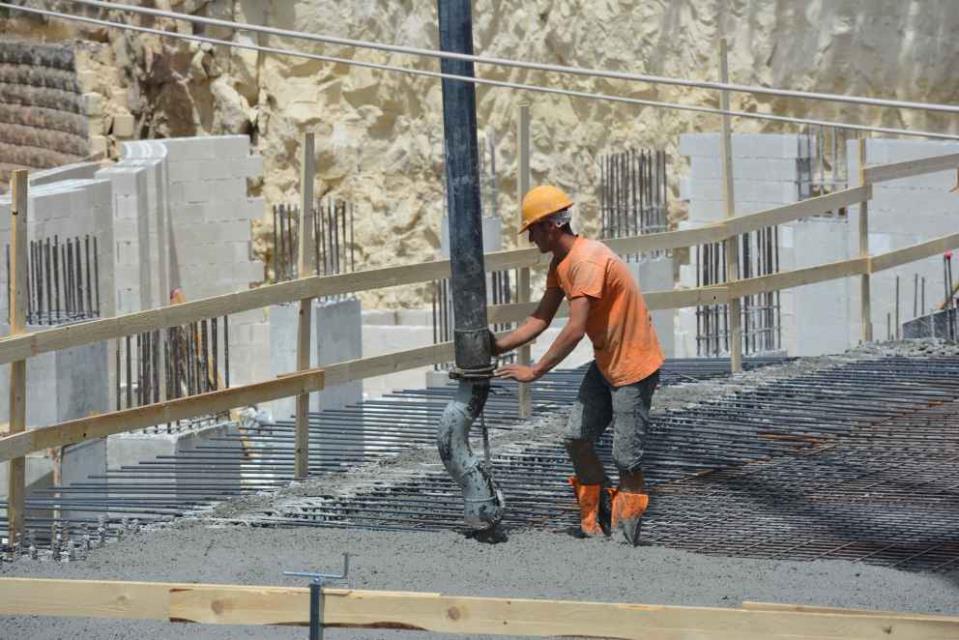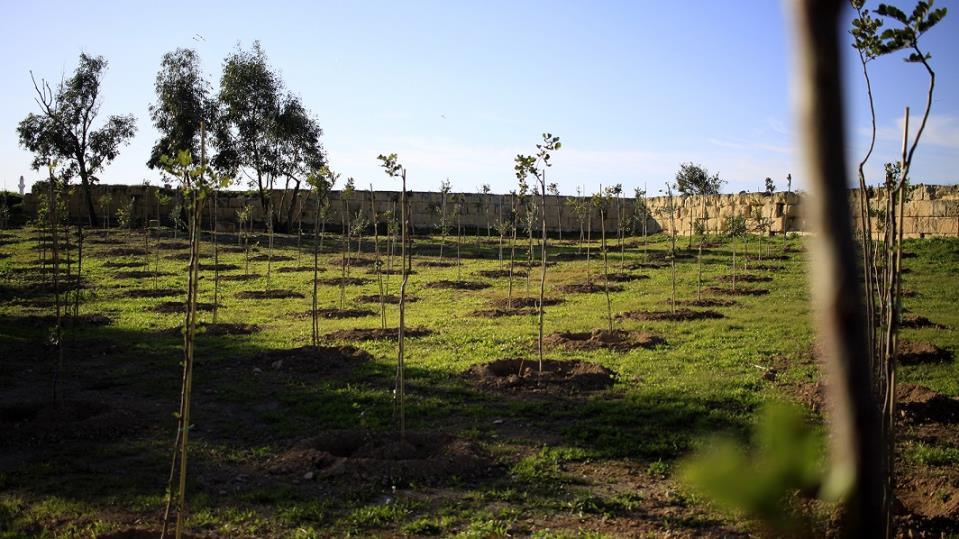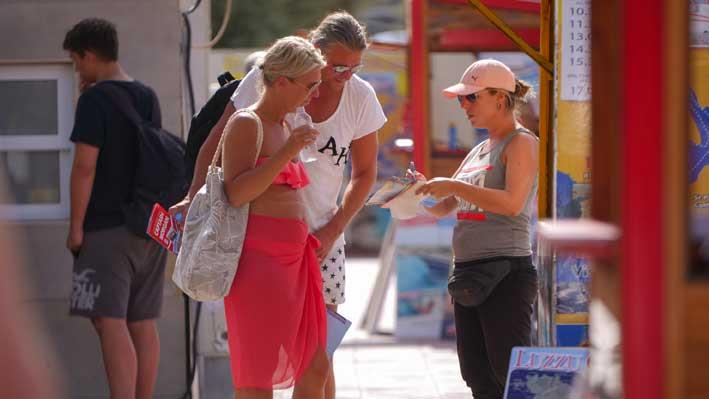Malta should have a leader who truly has a vision for the country and does not sacrifice our natural environment and open urban spaces for short-term projects, says Ryan Vella, from the NGO Għaqda Siġar Maltin (GHSM), talking to The Malta Independent on Sunday.
Għaqda Siġar Maltin is a non-government organisation that is passionate about the local natural environment and the aim of which is to rehabilitate Malta’s ecosystems and educate the public about the environment.
Vella added that the environment should be given more priority in all government infrastructural projects and it must be ensured that all planned projects are sustainable in the long-term. The NGO is urging the government to preserve the existing natural environment at all costs by controlling construction in pristine locations and by forbidding the destruction of the old trees at the side of our roads.
Although tree-planting efforts are to be applauded, the NGO believes that more serious investment is needed to increase the amount of tree cover on the Maltese Islands.

An honest dialogue with eNGOs
NGO Friends of the Earth Malta also (FOE) expects some very fundamental changes in governance, said its director, Martin Galea de Giovanni. This is because, for a number of years, Malta has had a dominant value system based on prioritising economic growth at all costs, which has led to some of the biggest environmental and social injustices suffered by the country.
“FOE believes that there will be no hope of environmental and social justice until institutions are freed from the grip of big businesses that have taken over control of Malta’s democratic structures,” said Mr Galea de Giovanni.
He added that FOE hopes for a full investigation into all recent major infrastructural projects as well as planning decisions, such as the Malta-Gozo tunnel, the Central Link Project and the db tower.
He is hoping for a stronger agricultural sector in order to protect and value farmers’ livelihoods, that the agricultural sector will be given a clear direction, support for a move to quality production and a strong National Agricultural policy that will establish a vision and goals for the sector.
FOE will also be eager to see the new Prime Minister giving waste-related issues the importance they deserve, especially by making sure that the Beverage Container Refund Scheme (BCRS) will be successfully set in motion as promised, in 2020.
“Apart from these fundamental changes, FOE expects that Malta will have a Prime Minister who is open to clear and honest dialogue with environmental NGOs,” said Mr Galea de Giovanni, adding that if the wellbeing of communities, and living in harmony with nature is, at the core of the political agenda, the government will find the support of NGOs in the interests of everyone living on the Maltese Islands.

A system that serves the people
Moviment Graffitti is another non-governmental organisation that is against the exploitation of people, the environment and animals. The NGO’s Andre Callus told The Malta Independent on Sunday that over a number of years, people from the business sector have taken over the running of our country and that the government has been giving big business in Malta the freedom to determine the use of the country’s resources and the shaping of a number of policies.
“This rotten and symptomatic system has led to severe consequences in the planning and environmental sector, such as large areas of land that have been given to private companies such as the db Group and Sadeen to be used for projects that ruin the surrounding communities and the natural environment,” he said.
Moviment Graffiti hopes for change, Callus said. The NGO hopes that the authorities responsible for planning, construction and the environment, such as the Planning Authority (PA), the Environment and Resources Authority (ERA) and the Building Regulations Office (BRO), will begin to manage things differently, in a way that will safeguard people’s wellbeing.
He said he hopes for a system that serves the ordinary people rather than contractors, because a barrage of senseless and harmful construction projects have been approved by boards composed of “government appointees and developers’ lackeys”. He said a number of residents have lost their homes because of such a system.
Callus added that Malta’s dire planning and environment situation does not stem from incompetence or carelessness, but “is “the result of powerful actors pulling the strings from behind the scenes.”
He believes that change will only take place if there is an overhaul of the planning regime in Malta. Some of these changes will include removing anyone with a conflict of interest from government consultancies, authority boards and positions of influence.
He also added that the authorities responsible for planning and the environment require a radical change in their structure in order to establish an authority that is transparent, independent and accountable.
When it comes to decision-making, priority should be given to the quality of life and wellbeing of people in Malta, as this is more important than paying attention to the few individuals who have political and monetary power, Callus said.
Such improvements will only be successful if they are part of a wider and deeper change in the country’s institutional framework, he said, adding that such changes can only come about if the government acknowledges the harmful effects of its policies and actions.

Complete overhaul of the PA
The Malta Independent on Sunday also spoke to NGO Din l-Art Helwa (DLH), the aim of which is to preserve and protect historic buildings and monuments. The executive president of DLH, Alex Torpiano, said that we need a complete overhaul of Malta’s Planning Authority (PA).
“One vital aspect of good governance, which is rather overlooked, is the running of the PA. Previous years have shown that unbridled development is closely associated with corruption which results in deleterious impacts on our built and natural heritage, and ultimately on our quality of life as citizens,” he said.
Torpiano added that both candidates vying for the position of Prime Minister have acknowledged that a better approach towards Malta’s environment is required. He hopes, however, that this is not limited to the token planting of trees on traffic islands and central strips.
He Torpiano said he hopes to see a PM who will take the bull by the horns and implement any necessary changes. The reforms that DLH hopes to see are particularly related to how the Planning Authority operates. It believes that changes should be implemented to ensure that spatial planning policy is transparent, clean of partisan political intervention and promotes sustainability.
Torpiano added that such changes should also be made to sustain the legacy of the urban and natural environment, which we are leaving for our children and, eventually, their own children.

Tourism capacity study ‘long overdue’
The coordinator of Flimkien għal Ambjent Aħjar (FAA), Astrid Vella, said that in order to succeed, Malta needs a fresh start, together with a fresh mentality.
She said that, over the years, successive governments have issued policies that have diluted the effective protection of our built and natural heritage as a result of vague regulations full of loopholes that can be twisted by accommodating Planning Authority officials to suit the developer’s application.
“This needs to change and the authority should begin prioritising and giving importance to the rights of residents, air and noise pollution, trees and climate change,” she said. “The PA boards need to be scrapped altogether since the Planning Authority is beyond redemption. Many of the present PA staff are ‘institutionalised’ in their mindset and, with a few exceptions, we need to start from scratch and impose a sense of ethics that is sorely lacking.
“It is time to eradicate architect chairmen with a pro-development mindset and strong connections with developers, and start giving planners a say in the PA to reduce instances of conflict of interest,” she said.
Environmental and social studies have been abandoned and need to be resumed in order to meet with EU standards on Environment Impact Assessments, on Strategic Environment Assessments and on Social Impact Assessments.
Studies on the implications of new policies has never been carried out, Vella continued, adding that there should be a moratorium on the Tall Buildings Policy in order to assess how many extra units have been permitted, their energy consumption and the pressure on our utilities. The same goes for the Malta-Gozo tunnel project, Vella added.
A serious carrying capacity study with regards to tourists in Malta is long overdue, as is a study on the pollution created by cruise ships in Grand Harbour.
The Environment and Resource Authority (ERA) needs to be strengthened and given the deciding vote on ODZ applications and the PA website needs to be accessible to everyone, not just those with an e-ID as this goes against the Aarhus convention, as does the failure to upload key reports, she said, pointing out that the PA’s Enforcement Division seems to have gone into hibernation.
“In order to have effective regulations, there needs to be an increase in monitoring that is backed up by effective enforcement. However, this all boils down to a commitment to rigorously ethical practice. There have been times in the past when we were inching in that direction but now we have slid right down to scrape the bottom of the barrel.”
She pointed out that we have come back to the words uttered by former President of the Chamber of Architects, David Felice, who said: “How can the public ever hope to win over the combined weight of developers who can afford top consultants and lawyers. It has never been a level of playing field!”